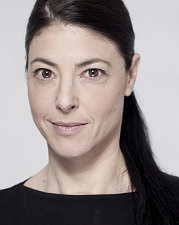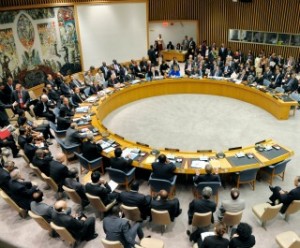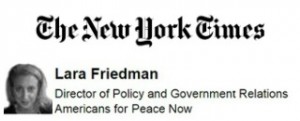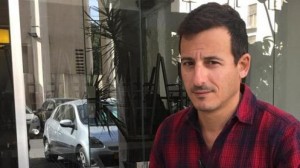These are not easy or happy times in the Middle East. If the past year is anything to go by, things are only getting harder for Israelis and Palestinians. We are collectively sliding slowly down a slippery slope toward some sort of ugly, violent, and tribal one-state reality. Just look at the recent Pew Survey’s finding that roughly half of Israeli Jews look approvingly on the notion of expelling Arabs from the country. Look at the extensive incitement on Palestinian Authority media, the wave of knife attacks and the dismal socio-economic state of the Gaza Strip. How are we—Israelis and American Jews—going to deal with this reality in the years to come? Where do Shalom Achshav (Peace Now in Israel) and Americans for Peace Now fit in? —Yossi Alpher
News from Peace Now's (Israel) Settlement Watch:
While the government issued a statement arguing that all of the plans advanced were for already existing buildings except from those in Ganei Modi'in, Peace Now's aerial photos illustrate that this is not the case, and much of the planning is for new housing units.
UNCOVERING ISRAEL, INSIDE AND OUT
With Member of Knesset Merav Michaeli (Zionist Union)

Israeli Knesset Member Merav Michaely of the Zionist Union was a guest speaker on Thursday, April 14, 2016 at an event co-sponsored by the New Israel Fund and Americans for Peace Now. MK Michaeli spoke about the challenges that progressive Israelis face, both on security and foreign affairs questions and on domestic affairs.
One of Israel’s foremost protectors of democracy, Zionist Union MK Merav Michaeli is a voice of reason, justice, and passion for human rights. Click here to watch Merav’s brief but stirring analysis of the aftermath of the recent Hebron shooting, which has dominated Israel’s public discourse in recent days.

Update: this action, now closed, ran in April 2016.
For years right-wing critics – Israeli and American, inside and outside Congress – have maligned President Obama for supposedly failing to sufficiently defend and support Israel. In particular, they have warned that if President Obama were to allow the United Nations Security Council (UNSC) to pass a resolution criticizing objectionable Israeli policies, or a resolution weighing in on the solution to the Israeli-Palestinian conflict, it would be an unprecedented betrayal of Israel – a betrayal that a true friend of Israel would never consider, let alone permit.
Now, the truth is finally out – in this op-ed in the New York Times, by APN Director of Policy & Government Relations Lara Friedman. And the truth is: President Obama is the only president since 1967 who has shielded Israel 100% from critical resolutions in the UNSC.
As a true friend of Israel, it is time for President Obama to stop shielding Israel in the UNSC, just as his predecessors in the Oval Office – Republican and Democrat alike – did numerous times over the past 48 years.
News from Peace Now's (Israel) Settlement Watch:
Advancement of Plans for Housing Units in the Settlements up by 250% in the First Quarter of 2016 Compared with the Same Period Last Year
While the government's declared policy in the settlements is that of a "planning freeze," during January-March 2016
plans for 674 housing units in the settlements were advanced (all over the West Bank and particularly in isolated
settlements), as opposed to 194 housing units in the same period last year.
During 2015, plans for 1,665 new housing units were promoted (1,044 of them were retroactively legalized after
having been built illegally and without a plan). This number constitutes a substantial decrease from 2014, during
which 8,606 new housing units had been promoted (801 of which retroactively legalized). The figures of the first
quarter of 2016 illustrate an upturn in the approval of plans, and sharply increase the total number of units
promoted by the current Netanyahu government. Additionally, as illustrated by the numbers above, while the
government states that it currently approves plans for already existing construction only, in reality in 2016 only
26% of the plans advanced constituted retroactive legalizations (compared with 63% in 2015).
Yossi Alpher is an independent security analyst. He is the former director of the Jaffee Center for Strategic Studies at Tel Aviv University, a former senior official with the Mossad, and a former IDF intelligence officer. Views and positions expressed here are those of the writer, and do not necessarily represent APN's views and policy positions.
This week, Alpher discusses how, at the far right and far left extremes of any prospective Likud-Labor coalition, we encounter views considered by many Israelis to be extremist: anti-Arab racism on the one hand, and a readiness to label some varieties of “terrorism” as legitimate resistance to occupation on the other; What the significance is of secret Netanyahu-Herzog unity government negotiations, a year into Netanyahu’s current right-wing coalition government; and what the backdrop is for the PLO's plan for the UN Security Council to vote on a motion to condemn the settlements on Pesach eve, April 22, and then reportedly backing down.
 WASHINGTON — With the Obama administration in its final year, several officials have said
that the president has grown so frustrated with trying to revive Middle East peace talks that
he may lay down his own outline for an Israeli-Palestinian two-state peace agreement, in the form of a
resolution in the United Nations Security Council.
WASHINGTON — With the Obama administration in its final year, several officials have said
that the president has grown so frustrated with trying to revive Middle East peace talks that
he may lay down his own outline for an Israeli-Palestinian two-state peace agreement, in the form of a
resolution in the United Nations Security Council.
If that happens, count on two reactions: Israel’s prime minister, Benjamin Netanyahu, will oppose it, and a chorus of American politicians and commentators will suggest that it would be unprecedented — even unthinkable — for an American president to support a Security Council resolution that Israel opposed, rather than veto it.
 Israel’s Peace Now movement today announced that Avi Buskila, a seasoned social activist and an
advertising and public affairs professional, has been hired as Peace Now’s new Director General. He is replacing
Yariv Oppenheimer, who has been the leader of Peace Now and the most recognizable public face of Israel’s peace
camp in the past 14 years.
Israel’s Peace Now movement today announced that Avi Buskila, a seasoned social activist and an
advertising and public affairs professional, has been hired as Peace Now’s new Director General. He is replacing
Yariv Oppenheimer, who has been the leader of Peace Now and the most recognizable public face of Israel’s peace
camp in the past 14 years.
Following is Peace Now’s statement:
Yossi Alpher is an independent security analyst. He is the former director of the Jaffee Center for Strategic Studies at Tel Aviv University, a former senior official with the Mossad, and a former IDF intelligence officer. Views and positions expressed here are those of the writer, and do not necessarily represent APN's views and policy positions.
This week, Alpher discusses Israel’s High Court of Justice's mandated revisions in the Netanyahu government’s deal with the gas multinationals; why the appointment of Dani Dayan, former head of the Council of Settlers in Judea and Samaria, to the post of consul-general in New York last week generated so much controversy and what political ramifications such an appointment may have for Israel-US relations; and what former Israeli ambassador to Washington Michael Oren is doing in Netanyahu’s coalition.
1| What more could be done to achieve
peace between Israelis and Palestinians?
2| What might women bring to the
peace process if more were included?
with Ruth Calderon, Tamara Cofman Wittes, Nadia Hijab, Naomi Chazan, Caroline Glick, Fania Oz-Salzberger, Laila El-Haddad, Nitsana Darshan-Leitner, Anat Saragusti, Cora Weiss, Sarai Aharoni, Noura Erakat, Laura Blumenfeld, Lara Friedman, Simone Susskind, Felice Friedson, Leila Hilal & Galia Golan
When did you last hear someone say something new about the peace process? And when did you last hear someone new say it? Every day, it seems, a panel of experts—diplomats, pundits, scholars, chin-pullers of all varieties—convenes to chew over the future of Israeli-Palestinian relations. These groups all have something in common: They are overwhelmingly male. The PBS program Frontline recently attracted criticism for asking 23 male experts and three women to reflect on the career of Prime Minister Benjamin Netanyahu. We at Moment have been offenders ourselves, printing past symposia on the Israeli-Palestinian conflict that featured far more male than female contributors.
